News
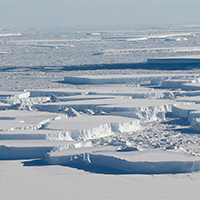
New study finds early warning signs prior to 2002 Antarctic ice shelf collapse
3/17/2023In 2002, an area of ice about the size of Rhode Island dramatically broke away from Antarctica as the Larsen B ice shelf collapsed. A new study of the conditions that led to the collapse may reveal warning signs to watch for future Antarctic ice shelf retreat, according to a Penn State-led team of scientists.
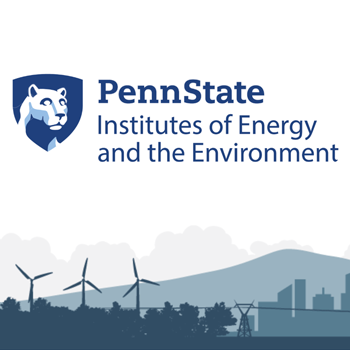
IEE accepting applications for three tenure-line faculty positions
11/1/2022The Institutes of Energy and the Environment (IEE) is seeking applications for three tenure-line faculty positions in 1) Climate Impact Prediction in Support of Solutions and Climate Justice, 2) Climate Risk and Decision-making, and 3) Climate Policy and Environmental Justice.
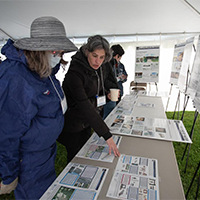
DOE-funded project investigates climate change effects on low-income housing
10/13/2022Coastal cities such as Baltimore expect to see increased impacts of climate change, such as severe flooding, heat stress and increased energy consumption, particularly in low-income communities. CLIMA researchers are part of a DOE-funded effort to study the effects of climate change on the built environment and how American cities can equitably mitigate these events.

Penn State shares $25M DOE grant to study climate change impacts and adaptation
9/19/2022Penn State was named a collaborating institution in a $66 million U.S. Department of Energy Urban Integrated Field (Urban IFL) Program designed to study the impacts of climate change on American cities. The program will study the impacts of climate change in three major U.S. cities — Baltimore, Chicago and Austin — and involves more than 20 institutions nationwide. Penn State, along with eight other organizations, will support the Baltimore project, which is being led by Johns Hopkins University.
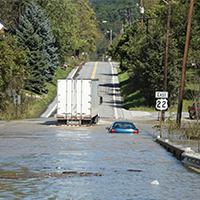
Climate uncertainty colors flood risk assessment
11/18/2021Understanding how climate change will affect the flooding of rivers may become easier with a new framework for assessing flood risk that’s been developed by an interdisciplinary team from Penn State. “New home builders want to know how high they have to put their buildings to be safe for the future,” said Alfonso Mejia, associate professor of civil and environmental engineering. “They want to know how the flood zones are going to change in the future.”
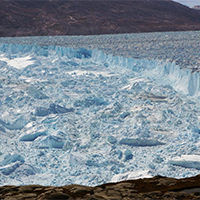
Antarctic ice model shows unstoppable sea level rise if Paris target is not met
5/12/2021The world is currently on track to exceed 3 degrees Celsius (5.4 degrees Fahrenheit) of global warming by the year 2100, and new research shows that such a scenario would drastically accelerate the pace of sea-level rise. If the rate of global warming continues on its current trajectory, we will reach a tipping point by 2060, past which these consequences would be “irreversible on multi-century timescales,” according to researchers.

Webinar Series: Science and Values in Climate Risk Management
4/22/2021The Science and Values in Climate Risk Management webinar series, invites speakers from across the STEM–humanities spectrum to present research that integrates the scientific and ethical sides of climate change research, policy analysis, and the management of climate risks.
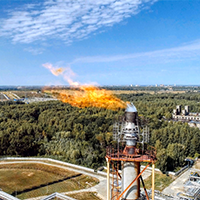
When calculating the social cost of methane, equity matters
4/21/2021The social cost of methane — a greenhouse gas that is 30 times as potent as carbon dioxide in its ability to trap heat — varies by as much as an order of magnitude between industrialized and developing regions of the world, according to researchers from Lawrence Berkeley National Laboratory (Berkeley Lab), UC Berkeley and Penn State. Policy makers use the “social costs of methane” to approximate the impacts of climate-warming gases like methane — which may be felt for years in rising sea levels, changes in agricultural productivity, or more extreme droughts, floods and heat waves.
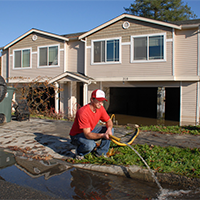
Uncertainties key to balancing flood risk and cost in elevating houses
10/26/2020People who live in areas designated as river flood zones often seek to raise their homes. “Many houses located along rivers in Pennsylvania are in danger of being flooded,” said Klaus Keller, professor of geosciences. “Some houses are elevated high, some to intermediate levels, and some not at all. Why is this?” Penn State researchers investigated if they might improve on the Federal Emergency Management Agency (FEMA)’s suggested elevation given uncertainties surrounding, for example, future flooding, the future value of money and the vulnerability of a house to flooding.
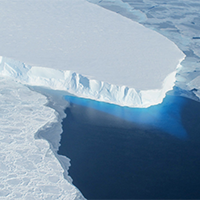
Ice melt projections may underestimate Antarctic contribution to sea level rise
10/8/2020Fluctuations in the weather can have a significant impact on melting Antarctic ice, and models that do not include this factor can underestimate the global impact of sea level rise, according to CLIMA researchers. “We know ice sheets are melting as global temperatures increase, but uncertainties remain about how much and how fast that will happen,” said Chris Forest, professor of climate dynamics at Penn State. “Our findings shed new light on one area of uncertainty, suggesting climate variability has a significant impact on melting ice sheets and sea level rise.”
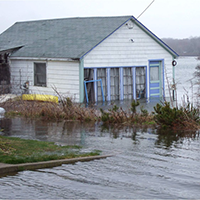
Simpler models may be better for determining some climate risk
10/1/2020According to CLIMA researchers, to assess climate risks, less complex models, with their ability to better sample uncertainties, may be a better choice. “There is a downside to the very detailed, very complex models we often strive for,” said Casey Helgeson, assistant research professor, Earth and Environmental Systems Institute. “Sometimes the complexity of scientific tools constrains what we can learn through science. The choke point isn’t necessarily at the knowledge going into a model, but at the processing.”

CLIMA and MARISA Welcome New Coastal Climate Extension Specialist
5/6/2020EESI, CLIMA and MARISA welcome Benjamin Watson as the new Coastal Climate Extension Specialist for the Chesapeake Bay Region, stationed at the Virginia Institute for Marine Sciences (VIMS). Ben brings a background in science outreach and engagement in local communities. ‘I look forward to continuing to work with stakeholders across the watershed to promote informed environmental decision-making,’ he said, ‘and to making sure Chesapeake communities are prepared for the challenges of climate change.’

Individual climate models may not provide the complete picture
11/12/2019Equilibrium climate sensitivity — how sensitive the Earth’s climate is to changes in atmospheric carbon dioxide — may be underestimated in individual climate models, according to a team of climate scientists. “Probabilistic estimates of climate system properties often rely on the comparison of model simulation to observed temperature records and an estimate of the internal climate variability,” the researchers report in Geophysical Research Letters. If the internal climate variability is wrong, then the probabilistic estimates will be wrong and climate predictions could miss the mark.
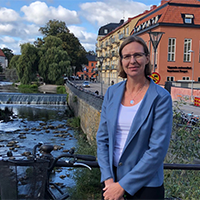
Turning conflict into collaboration on critical water challenges
10/7/2019Lara Fowler is currently a visiting scholar at Uppsala University in Sweden where she is researching why and how people cooperate to manage critical water challenges and find solutions. “I wanted to find places in the world where people are coming together to find solutions,” she said. “And there is a tremendous amount of international water work based out of Sweden.”
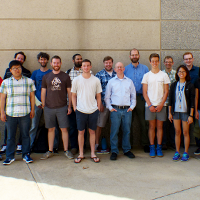
Now accepting applications for four new positions
9/20/2019The Earth and Environmental Systems Institute (EESI) is currently accepting applications for two new postdoctoral scholar positions, a scientific programmer, and research data management specialist.
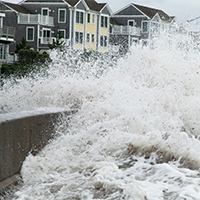
Researchers identify five factors for better coastal risk-management strategies
8/30/2019Decision makers face choices about how to design risk management strategies to protect coastal populations from rising sea levels and storm surges. Finding a solid strategy is difficult and only complicated by a warming climate, but a team of Penn State researchers has identified five factors that can better characterize risk management options.
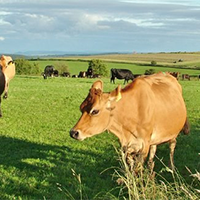
Reducing farm greenhouse gas emissions may plant the seed for a cooler planet
7/22/2019By adopting a few beneficial management practices, farms — and particularly dairy farms — can play a key role in reducing greenhouse gas emissions that are warming the planet, according to a team of researchers.

Study finds global action needed to ensure acceptable climate futures
4/16/2019Ensuring a tolerable climate future, one that reduces warming while considering the costs, requires immediate global action, according to a study published in the journal Nature Climate Change. “The study analyzes climate change as a multi-objective problem,” said CLIMA Director Klaus Keller. “Considering only a goal of tolerable temperature changes misses important aspects. One also needs to consider goals such as tolerable costs and impacts.”

Decision makers need contextual interactive guidance
3/28/2019As decision makers balance economic, environmental and social aspects of living, planners and others need decision-making tools that support the process, but do not dictate the outcomes, so that trade-off choices can reflect a wide array of needs, according to a team of researchers who looked at an interactive program using trade-off diagrams.
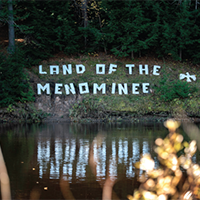
Menominee Nation confronts the challenge of climate change
1/9/2019A new article in Orion Magazine explores how the Menominee Nation is facing the threats of climate change to its forest and way of life. A Penn State-led research team has been working with the College of Menominee Nation’s Sustainable Development Institute to incorporate indigenous knowledge and values into modeling systems that seek to analyze potential strategies for managing their forests in a warming climate.
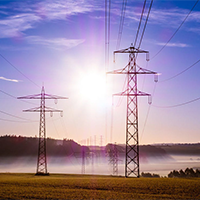
Researchers evaluate studies supporting state subsidies for nuclear plants
11/29/2018A team of Penn State researchers examined the set of studies that has been used in legislative discussions to provide evidence in support of subsidy programs for nuclear plants. To inform the public debate in the Northeastern and mid-Atlantic states, the team of researchers analyzed previously released reports and offered a critical assessment from the perspective of economic theory and engineering fundamentals.
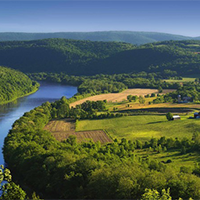
NSF funds $3 million graduate training program focused on Food-Energy-Water
9/11/2018The NSF-funded project, “Landscape-U, Impactful partnerships among graduate students and managers for regenerative landscape design,” focuses on societal issues around food, energy and water in the Chesapeake Bay watershed and globally. The new graduate program that will train students to find solutions to real-world problems facing Food-Energy-Water (FEW) systems.
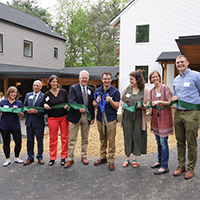
Penn State students help create affordable, sustainable housing in State College
9/10/2018GreenBuild, a collaborative project with the State College Community Land Trust, is is awarded U.S. Green Building Council Central PA Chapter Leadership award for the construction of affordable, energy-efficient homes for two State College families.
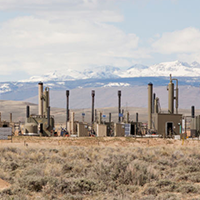
Study: US oil and gas methane emissions have been dramatically underestimated
6/22/2018CLIMA researcher, Kenneth Davis, participates in a recent study, conducted by the Environmental Defense Fund and 15 partner universities, which asserts that methane emissions from oil and gas production are likely 63 percent higher than what the Environmental Protection Agency has reported.
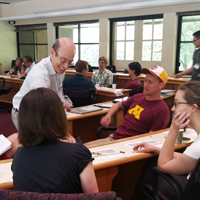
Now Accepting Applications: 6th Annual Summer School on Sustainable Climate Risk Management
2/27/2018The Network for Sustainable Climate Risk Management (SCRiM) welcomes applications (due April 8) for its Summer School from advanced graduate students, postdocs, and early career decisionmaking/policy professionals who are working on issues related to climate risk.
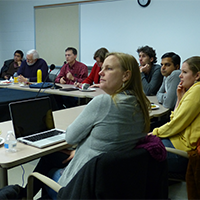
CLIMA launches Spring 2018 seminar series
1/18/2018The CLIMA Spring 2018 Seminar Series will take place on Thursdays in 117 EES at 3:30 PM. The first installment of this series will take place on January 25.

Pete Smith on 'Managing the Local Land Resource', Dec 16
12/16/2017Pete Smith, University of Aberdeen (Scotland, UK), will speak on Saturday, Deceber 16 at 10:00 a.m. The lecture, entitled “Managing the Local Land Resource”, will be held at the Energy and the Environment Laboratory.

New Report: Resilience to a Changing Climate in the Chesapeake Bay Watershed
11/14/2017Penn State researchers, Klaus Keller and Robert Nicholas, collaborate with the RAND Corporation and Johns Hopkins University on a report which synthesizes discussions with stakeholders on resilience and adaptation to a changing climate in the Chesapeake Bay watershed.

Colloquium on the Environment with Paul Hawken, Nov 14
11/10/2017Paul Hawken will be the keynote speaker for the 2017 Colloquium on the Environment. Hawken will speak on Tuesday, November 14 at 5:00 p.m. at The State Theatre on “Drawdown, The Most Comprehensive Plan Ever Proposed to Reverse Global Warming.” Immediately following Paul Hawken’s presentation, there will be a reception in the Hintz Family Alumni Center. The event is free and open to the public, but please register on the event website.
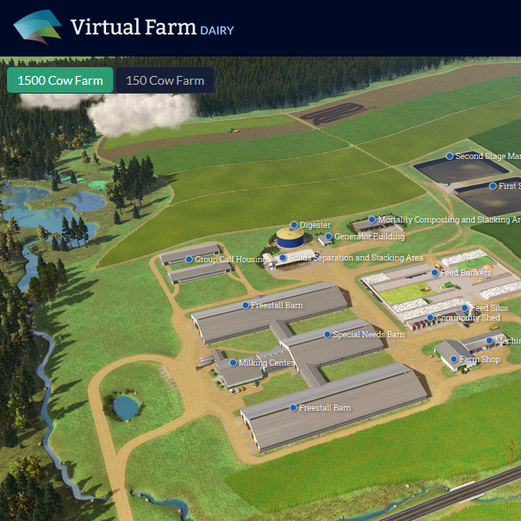
'Virtual farm' website provides a plethora of dairy sustainability information
11/9/2017Changing weather patterns pose significant challenges for modern dairy farmers — excessive hot or cold temperatures, drought and humidity can have a detrimental effect on cows’ health, which ultimately can lead to decreased milk production. Now, those farmers can see sustainability principles in action with just a few mouse clicks, thanks to an interactive “virtual farm” website developed by researchers in Penn State’s College of Agricultural Sciences and Penn State Extension, in partnership with the project’s lead, the University of Wisconsin-Madison, Cornell University and the Dairy Innovation Center.
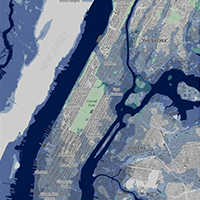
Sea-level rise, not stronger storm surge, will cause future NYC flooding
10/24/2017Rising sea levels caused by a warming climate threaten greater future storm damage to New York City, but the paths of stronger future storms may shift offshore. This will change the coastal risk for the city, according to a team of climate scientists including CLIMA’s Michael Mann, Richard Alley, and David Pollard.
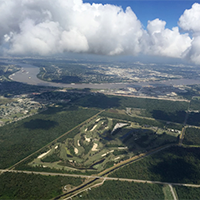
Climate change and extreme weather challenge communities to be resilient
10/5/2017Flooding in Texas and again in Louisiana, a category 5 hurricane in the Atlantic hammering Caribbean islands and Florida and, of course, memories of Sandy and Katrina place extreme weather events like hurricanes and the flooding, storm surge and winds that accompany them in the minds of people in the storms’ paths, but also forefront in the minds of administrators, first responders, government officials and city planners.
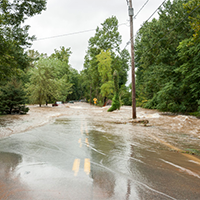
Report addresses flooding and flood insurance impacts on rural Pennsylvania
9/7/2017A newly released report examines how flooding and recent changes to the federal flood insurance program are impacting rural Pennsylvania in unique ways. “Flood Mitigation for Pennsylvania’s Rural Communities: Community Scale Impact of Federal Policies” was authored by an interdisciplinary team of researchers from Penn State, Bucknell University and Florida Gulf Coast University.
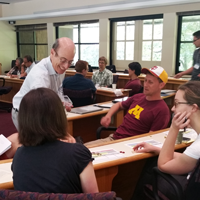
Sustainable Climate Risk Management Summer School marks fifth year
5/19/2017The Network for Sustainable Climate Risk Management (SCRiM) welcomes applications (due May 30th) for its Summer School from advanced graduate students, postdocs, and early career professionals in the decisionmaking and policy communities who are working on issues related to climate risk.

SCRiM and WPSU co-produce PBS documentary 'Managing Risk in a Changing Climate
4/19/2017The PBS documentary, “Managing Risk in a Changing Climate”, takes viewers to coastal Louisiana, where threats associated with climate change leave communities like New Orleans facing tough choices under deep uncertainty. The film was produced by WPSU under the guidance and support of the Network for Sustainable Climate Risk Management (SCRiM).
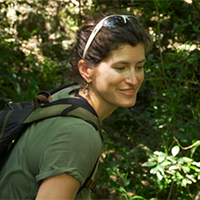
Erica Smithwick featured in Penn State’s Women in Science Profiles
3/24/2017Erica Smithwick, ecologist and associate professor of geography, is among four women profiled who inspire students to pursue careers in science, technology, engineering and math. WPSU Penn State’s Women in Science Profiles (WiSci Files) introduces viewers to local women with diverse careers in Science, Technology, Engineering and Math (STEM) fields through a series of short video profiles.
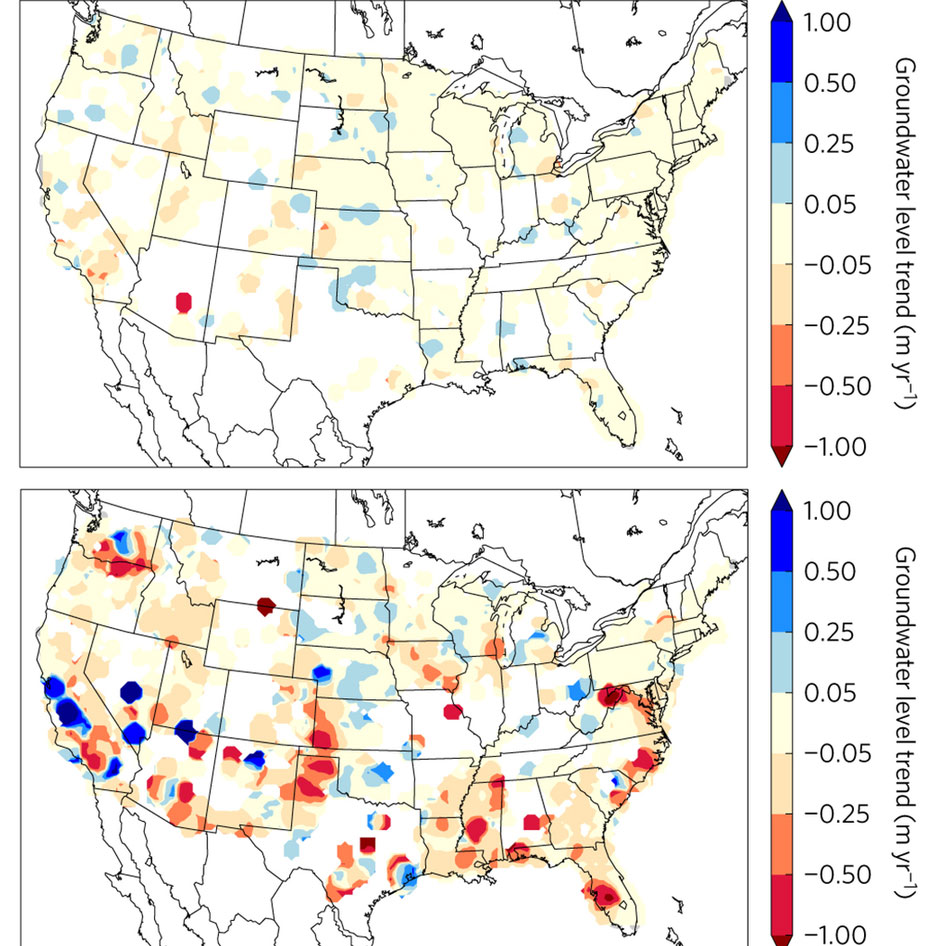
Deep groundwater aquifers respond rapidly to climate variability
2/8/2017Changes in climate can rapidly impact even the deepest freshwater aquifers according to Penn State and Columbia University hydrologists. The researchers found that responses to climate variations can be detected in deep groundwater aquifers faster than expected — in many cases within a year. The research, published in Nature Geoscience, sheds new light on groundwater budgets in the U.S. and better defines how water held in deep aquifers could change with the climate.

Campus natural gas power plants pose no radon risks
2/7/2017A two-year study on the radon concentrations associated with burning natural gas, commissioned by Penn State’s Office of the Physical Plant and conducted by University researchers, concluded that Penn State’s two power plants posed no radon-related health risks.

Chris Forest co-authors report assessing cost of climate change
2/2/2017Chris Forest, associate professor of climate dynamics at Penn State, was co-author of a National Academies report asessing new methods for estimating the social cost of carbon. Forest, an expert on the uncertainty and integration aspects of climate modeling, contributed his knowledge on modeling the long-term response in the Earth system to future emissions while also considering computational efficiency of the overall modeling system.

James Kasting to give talk at CLIMA Seminar on Nov 17
11/11/2016Dr. James Kasting, Department of Geosciences, will speak at an upcoming CLIMA seminar on “Wet bulb temperatures and human heat stress in a rapidly warming world”. The seminar is scheduled for Nov 17 in 117 EES at 12:15p. A light lunch will be provided, courtesy of CLIMA. The presentation is open to the public.

CLIMA Scientists help launch new Mid-Atlantic RISA
11/9/2016Klaus Keller and Robert Nicholas will take part in MARISA (Mid-Atlantic Regional Integrated Sciences and Assessments), a new, five-year, $3.6 million award from NOAA. Dr. Nicholas will lead efforts to develop localized, context-specific climate climate data products that capture key uncertainties and better address stakeholder needs, while Dr. Keller will co-lead project focused on training a new leaders in climate-change adaptation and risk management. MARISA will benefit from many open-source tools, methods, and datasets developed under other CLIMA-affiliated awards.
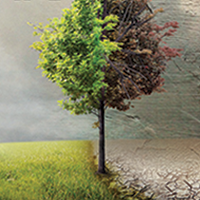
Public Screening and Discussion for Before the Flood to be held Nov 2
10/27/2016Michael Man, Professor of Atmospheric Science at Penn State, will be moderating a discussion after a screening of Before the Flood, a National Geographic film on climate change featuring Leonardo DiCaprio, on Nov 2 at 6:30p in 22 Deike Building. The discussion will feature panelists Richard Alley, Klaus Keller, Tom Richard, Erica Smithwick, and David Titley.
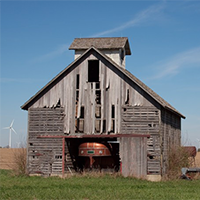
Researchers receive NSF grant to study how household decisions impact climate
10/24/2016The National Science Foundation has awarded $1.4 million to scientists working in two suburban Illinois communities to find whether families are willing to adjust their habits to help offset the impacts of climate change. An interdisciplinary team of scientists from five universities, including Penn State, will directly ask people in the test communities if they would voluntarily make cost-effective changes in how they consume food, energy and water (FEW) in favor of more sustainable practices. The effort marks a new ground-up approach to studying the effects of human activities on climate.
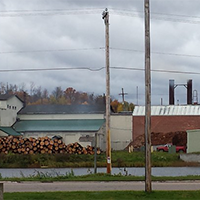
Climate change impacts on Menominee Nation's forest home focus of NSF funding
10/11/2016A Native American tribal nation in Wisconsin faces cultural and economic challenges as climate change impacts its forest home. A $1.7 million grant from the National Science Foundation will study this relationship and how it could inform decision-making about forest management.
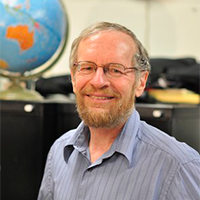
Richard Alley, receives Climate Communication Prize
9/26/2016The American Geophysical Union (AGU) awarded Richard Alley, Evan Pugh Professor of Geosciences at Penn State, with the 2016 Climate Communication Prize. The award honors scientists who have made a significant contribution in promoting scientific literacy and fostering understanding of science-based values.
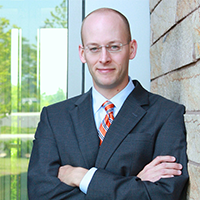
Penn State Law professor testifies before U.S. Senate subcommittee
9/23/2016Penn State Law Professor Jamison E. Colburn testified on Sept. 21 before the U.S. Senate Committee on Environment & Public Works Subcommittee on Fisheries, Water, and Wildlife regarding proposed revisions to the U.S. Fish and Wildlife Service’s Mitigation Policy. The revisions, the first since 1981, were announced in March and broaden the policy’s scope to include larger-scale stressors, including climate change.
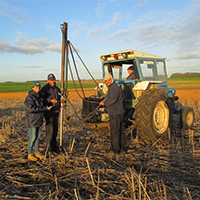
Simulation modeling is cream of the crop for ag researchers
5/20/2016Working with the National Institute of Agricultural Research in Treinta y Tres, Uruguay, Virginia Pravia is using Cycles — a computational simulation model developed by researchers in Penn State’s Agroecosystems Modeling Laboratory — to study soil nutrients in crop-pasture systems. According to Armen Kemanian, an associate professor of production systems and modeling and a lead developer of the software, Cycles enables farmers and researchers to predict and study changes affecting crops over time.

Ask an Ethicist: Does climate change affect genders differently?
4/18/2016Question: Climate change is a global concern and media outlets tend to focus on certain issues such as ice sheet melt, sea level rise, government policies concerning climate change, and greenhouse gas emissions. These are all important issues and, until recently, I didn’t realize there were other concerns that we should be talking about, specifically regarding gender and climate change. So, what ethical concerns exist around gender and climate change?

The Danger of a Runaway Antarctica
4/4/2016Here are some disturbing things we have learned since December, when the nations of the world reached a landmark agreement in Paris to lower greenhouse gas emissions.
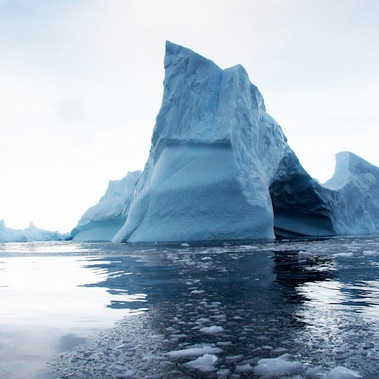
Sea level rise projections doubled for 2100, because of Antarctica
3/30/2016Sea levels could rise nearly twice as much as previously predicted by the end of this century if carbon dioxide emissions continue unabated, an outcome that could devastate coastal communities around the globe, according to new research.
The projection “nearly doubles” prior estimates of sea level rise, which had relied on a “minimal contribution from Antarctica,” said Rob DeConto of University of Massachusetts, Amherst, who authored the study with David Pollard of Penn State University.
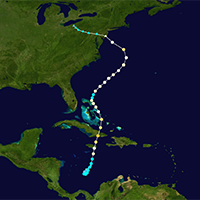
Hurricane season is never over for Penn State meteorology professor
2/26/2016Penn State meteorology professor Jenni Evans studies the powerful, unpredictable nature of hurricanes. Her research group has developed a framework for summarizing hurricane evolution used today by the National Hurricane Center, and her work has been recently featured by NBC Learn, the educational arm of NBC News.
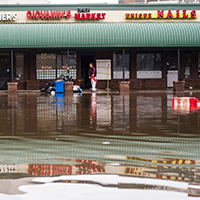
Deluge: Climate change, sea level, and the growing threat of coastal floods
2/5/2016Inch by inch, the sea is moving up the beach. We’ve seen the images of disappearing glaciers and morose polar bears on their shrinking floes. Climate change is melting the world’s ice, and sea levels are on the rise. Homes, businesses, roads, power lines, anything close to the shore will be in danger.
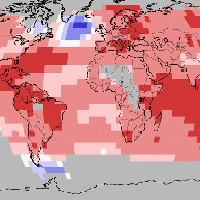
Odds are overwhelming that record heat due to climate change
1/25/2016Record-setting temperatures over the past century and a half are extremely unlikely to have occurred without human-caused climate change, but the odds of that happening are not quite as low as previously reported, according to an international team of meteorologists.
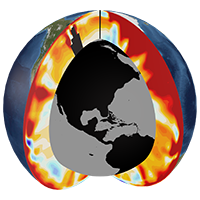
Scientists: Ocean warming has doubled in recent decades
1/20/2016Ocean temperatures increased as much in the last two decades as they had in more than a century before, according to a new study co-authored by SCRiM scientist, Chris Forest. “Since the 1990s, the total amount of heat content change in the oceans is twice that of what we’d seen up until that point in the past 150 years,” said Chris Forest, a Penn State meteorology professor and associate in the university’s Earth and Environmental Systems Institute.
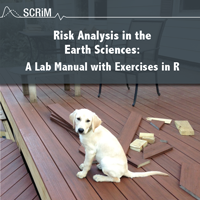
New e-textbook offers an introduction to climate risk analysis tools
12/3/2015A new e-textbook edited by Penn State researchers aims to provide scientists and students with the tools needed for assessing climate-related risks. The book, “Risk Analysis in the Earth Sciences: A Lab Manual with Exercises in R,” teaches the R programming language and offers lessons from disciplines such as geosciences, statistics, ethics and economics. It is free and available at https://leanpub.com/raes.
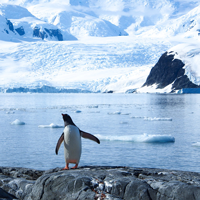
Antarctica’s next top numerical model
11/13/2015Pollard researches how the Earth’s ice sheets have changed and evolved, using data on ice extents — the amount of land and ocean that’s covered by ice — and sea levels to predict how they’ll continue to change in the future.
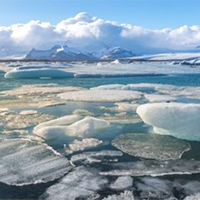
Nation's Leading Arctic Experts to Discuss U.S. Role and Interests in the Region
10/20/2015Members of the U.S. delegation to the Arctic Council, representatives from the National Geospatial-Intelligence Agency and the U.S. Department of the Interior, and Penn State experts will discuss the role and interests of the United States in shaping global strategies for the Arctic region from 1 to 5 p.m. on Tuesday, Oct. 20, in the Sutliff Auditorium of the Lewis Katz Building on Penn State’s University Park campus.
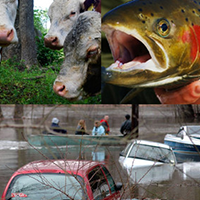
Penn State researchers assess the impacts of changing weather on Pennsylvania
9/14/2015Penn State researchers assessed the effects of changing climate conditions on agriculture, tourism, infrastructure, water resources, forestry, energy and human health in the 2015 Pennsylvania Climate Impact Assessment Update. The experts also made recommendations to help Pennsylvanians prepare and respond. The 2015 update was released by the Pennsylvania Department of Environmental Protection.
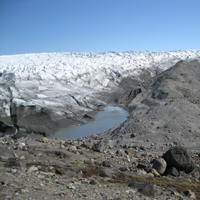
Study finds geoengineering technique would not stop sea level rise
8/17/2015Albedo modification, an emerging technology with the potential to offset some aspects of climate change, shouldn’t be counted on as a short-term solution to stop rising global sea levels, according to a new study from Penn State geoscientists.
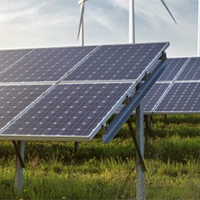
Penn State Law Faculty Member and Alum Discuss Solar and Water Law at Solar 2015 Conference
7/29/2015The production of solar energy is putting new demands on already strained regional water supplies and causing energy producers and lawmakers to consider how to balance the demand for renewable energy with water protection measures, according to a talk by Penn State Law senior lecturer Lara B. Fowler and alumnus Alex Wiker. The two spoke on June 28 at the Solar 2015 Conference, hosted by the American Solar Energy Society and held on Penn State’s University Park campus.
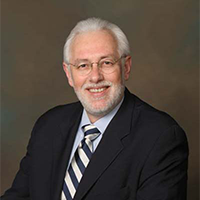
Waterbury Chair awarded highest honor at NARST ceremony
4/4/2015Richard Duschl, Kenneth B. Waterbury Chaired Professor of Secondary Education, was honored recently for his significant contributions to science education research. For his work, Duschl earned the Distinguished Contributions Award at the 2015 awards luncheon for NARST: A Worldwide Organization for Improving Science Teaching and Learning through Research.
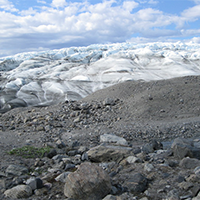
Greenland plays important role in polar ice research
1/20/2015Melting of glacial ice will probably raise the sea level around the globe, but how fast this melting will happen is uncertain. Greenland is especially pivotal in the study of melting ice sheets and rising sea levels because it experiences 50 percent more warming than the global average. In the case of the Greenland Ice Sheet, the more temperatures increase, the faster the ice will melt, according to computer model experiments by Penn State geoscientists.

NASA awards $30M grant to Penn State to help answer climate questions
1/12/2015Penn State will lead a five-year, $30 million mission to improve quantification of present-day carbon-related greenhouse gas sources and sinks. An improved understanding of these gases will advance our ability to predict and manage future climate change.
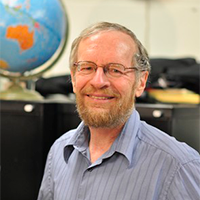
Alley receives BBVA Foundation Frontiers of Knowledge Award in climate change
1/9/2015Richard B. Alley, Evan Pugh Professor of Geosciences is the recipient of the 2015 BBVA Foundation Frontiers of Knowledge Award in the category of Climate Change. Alley is recognized for his “pioneering research” into the “mechanics of ice and its implications for abrupt climate change,” according to the jury citation.
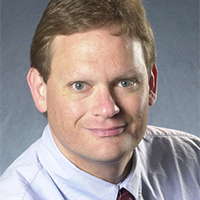
Faculty member Mort Webster makes our energy future a little less uncertain
7/16/2014Mort Webster, associate professor of Energy and Mineral Engineering, recently came to Penn State from the Massachusetts Institute of Technology. He can’t say enough good things about Penn State’s diverse expertise and strong support for interdisciplinary research. “[Penn State] is one of the few places I’ve found anywhere in the world that has expertise across so many areas,” Webster said.
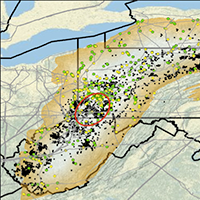
Carbon dioxide stored in Marcellus Shale wells could also boost gas production
7/11/2013Marcellus Shale and other natural gas plays are considered valuable for what can be extracted from them, but what if they could also be valuable and environmentally helpful after they are been depleted?
That is a question Penn State faculty are looking at as part of a research project the National Energy Technology Lab’s Regional University Alliance is conducting.
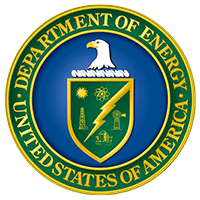
DOE grant joins climate modeling with local, regional empirical data
2/24/2011Karen Fisher-Vanden, associate professor of environmental and resource economics and CLIMA affiliate, will create an integrated assessment modeling research program for interdisciplinary collaboration as part of a $2 million grant from the Department of Energy.

NSF Awards Major Climate Change Education Grant to Consortium
8/10/2010The National Science Foundation has awarded a Climate Change Education grant to a consortium of zoos, universities, and other institutions. This group, led by the Chicago Zoological Society, includes the Earth System Science Center.
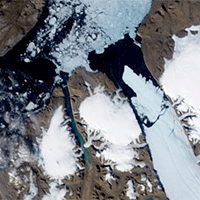
Greenland ice sheet faces 'tipping point in 10 years'
8/10/2010The Guardian reports on testimony before Congress by scientist Dr. Richard Alley and other notable scientists. Alley noted that a rise in temperature between 2C and 7C could result in the loss of Greenland’s ice sheet and a notable rise in sea-level.
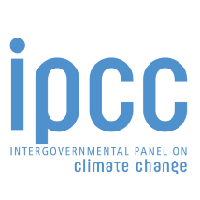
Penn State researchers among authors selected for Fifth Climate Change Report
6/23/2010The Intergovernmental Panel on Climate Change (IPCC) selected four Penn State climate scientists to participate in the 5th Assessment Report (AR5). The IPCC Working Group Bureau selected 831 climate experts from more than 3000 nominees on June 23, 2010. The number of nominees was an increase of more than 50% in comparison to the 4th Assessment Report.
